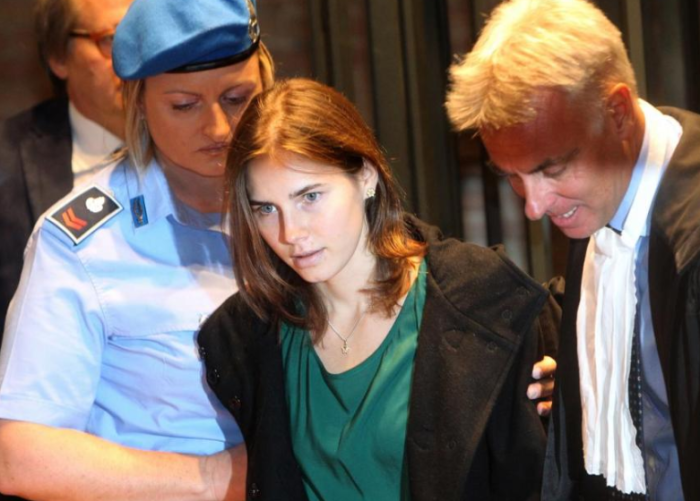Prison Fellowship Speaks Out After Amanda Knox Claims Brainwashing Cult Tactics Used on Inmates

America's largest Christian ministry serving those in prison is speaking out after Amanda Knox, a writer who spent four years in an Italian prison before being acquitted of murder, claimed that ministries use "cult tactics" to brainwash inmates.
Knox, who was originally convicted of the 2007 murder of British student Meredith Kercher in Italy before finally being definitively acquitted by the Supreme Court of Cassation in 2015, wrote a lengthy article earlier this week on feminist website Broadly, claiming that "vulnerable prisoners" are forced into embracing religion.
But James Ackerman, president and CEO of Prison Fellowship, told The Christian Post that participation in programs offered by ministries like Prison Fellowship are voluntary. And those programs help prisoners "achieve holistic life transformation and emerge as productive citizens."
"More than 24,000 prisoners across 293 U.S. prisons voluntarily participate in Prison Fellowship classes each month," he said. "Prison Fellowship also manages entire prison units in three prisons in Texas and Minnesota, which provide around 500 prisoners — who voluntarily chose to serve their time in those units — with a values-based reentry program of work and study within a supportive community."
Ackerman stressed that these are voluntary programs and "can be life-changing."
"Prisoners who participate in educational and/or vocational training while incarcerated have a 43 percent lower recidivism rate and increase their odds of finding employment after their release by 13 percent," he noted.
"We are seeing prisoners use their sentences as a time to grow, change and find a new, positive life path with Prison Fellowship staff and volunteers as their guide."
In her article on Broadly, Knox described some of her own experiences in prison, along with cases in the U.S. where nonreligious inmates have told her that they were afforded no alternatives to Christian-based rehabilitation programs, and were essentially forced to partake in prayer and other religious activities.
When describing 25-year-old Katie McKibben's experience at a county-contracted women's facility in Santa Ana, California, called The Villa, which she was forced to attend after failing to remain sober following her third DUI, Knox wrote that she was "subjected to incessant proselytizing."
McKibben is a secular humanist who was reportedly refused a nonreligious option. The 12-step program she was ordered to attend at The Villa included multiple prayers throughout the day, guest speakers talking about how they got saved and meetings at an evangelical church.
"Atheism, agnosticism, and secular humanism were not accepted as rehabilitative ideologies by the Villa's counselors. McKibben says they considered her refusal to acknowledge a higher power as symptomatic of 'the alcoholic mind.' As a result, McKibben lived in terror of being sent back to jail," Knox wrote.
McKibben said in her own words:
"There was a lot of fear, because if you do one thing wrong, you're back in jail. If you don't like the program they send you to, then the other option is jail."
The Villa in question has also rejected notions that its rehabilitation program is forced.
Addicts "come to the program voluntarily," a spokesperson for the group told Knox.
"Their parents can't make them. Their probation officers can't make them. And all we do is try to give them tools to help guide them toward their recovery. If they don't want it, then they'll probably continue to drink and use. It's that simple."
Knox argued that religious institutions have better access than secular ones to inmates at state and federal prisons in the U.S. and that secular beliefs are discriminated against within the criminal justice system. Even during her time in prison in Capanne, she said the only rehabilitation available was mass, Bible study and social hour with Franciscan nuns and friars.
She concluded that secular prisoners will able to enjoy the "privileges" their religious cellmates get "only when the justice system recognizes that religion doesn't have some special claim to social fitness — and that God isn't the only way to rehabilitation."





























